Exam 2- PP 1 Nonliving Infectious Particles
1/50
There's no tags or description
Looks like no tags are added yet.
Name | Mastery | Learn | Test | Matching | Spaced |
|---|
No study sessions yet.
51 Terms
nonliving infectious particles
characterizing and classifying viruses, virophages, viroids, prions
viruses do not have _, which make them unable to make proteins or ATP.
ribosomes
viruses have no _ generating mechanism.
ATP
viruses ARE _ which makes them medically important.
infectious
most viruses are _.
bacteria = friends and viruses = not!
pathogens!
DNA viruses are mostly _ stranded.
double
RNA viruses are mostly _ stranded.
single
herpes and hpv are a
huge family of viruses!
problem with chicken pox, herpes, and hpv is the fact that they can be
dormant in the body and then come back later.
hpv causes
warts on the hands + feet and cervical cancer
hpv and herpes eventually will _ from body
clear; ex- removing wart will result in a 70% chance of it not reappearing.
all viruses have
capsids.
what are capsids?
protein coats that enclose and protect their nucleic acid.
capsids are constructed from identical protein subunits called _
capsomers.
the capsid together with the nucleic acid form the _
nucleocapsid.
the nucleocapsid is composed of
capsid + nucleic acid (genome)
capsids are basically _ and _ .
protein; nucleic acids. (just missing lipids and carbs)
describe the two capsid types—
helical— continuous helix of capsomers forming a cylindrical nucleocapsid
polyhedral (Icosahedral)— vary in the number of capsomers; each capsomer may be made up of 1 or several proteins; some are enveloped meaning the membrane is outside of capsid
rabies virus is shaped like a
bullet
what are the 4 virus shapes
helical, icosahedral, enveloped, head and tail (complex)
explain helical—
stiff or flexible
rigid example: tubulovirus (looks like a tube)
flexible example: ebola..why do we see the same picture over and over again? if exposed, you would catch. not many people want to catch.
the protein that makes up a capsid in a virus are called which of the following?
capsomere
explain icosahedral (polyhedral)—
looks like a soccer ball (capsomeres)
spike protein: peplomere
example: adenovirus
explain head and tail (complex)—
example: T4 phages (virus that infects bacteria)
they can harm or help us in our gut
can influence our health
explain enveloped viruses—
example: herpes virus
steals the envelope from host cell membrane
covid = RNA enveloped virus
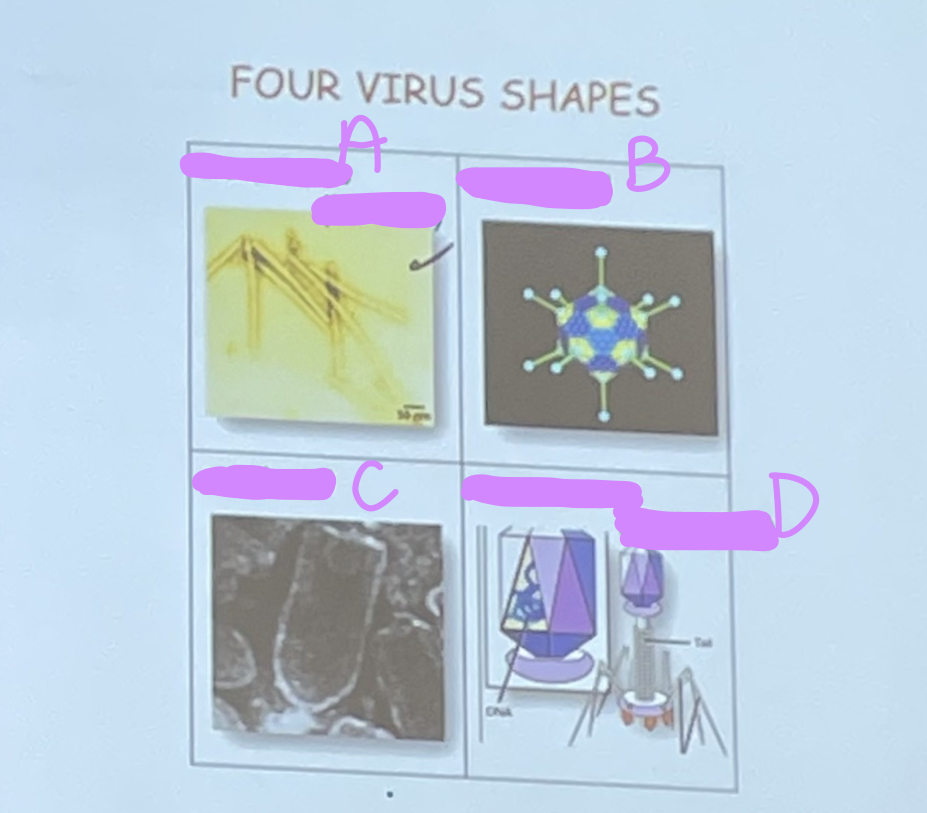
A
Helical virus
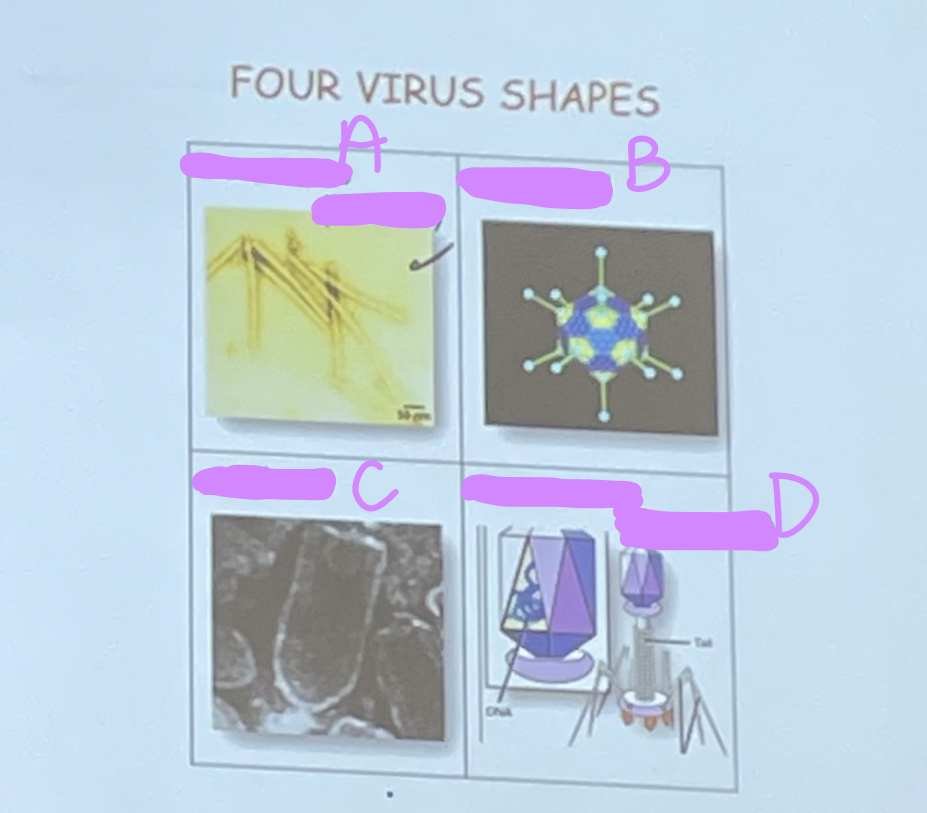
B
Icosahedral virus
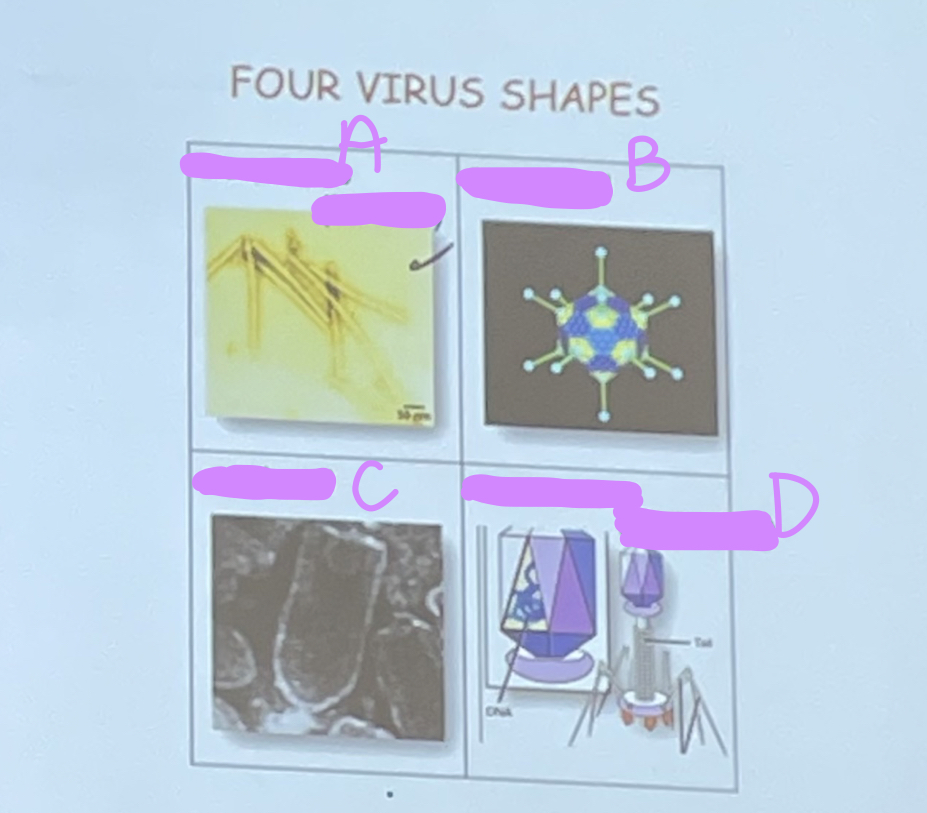
C
Enveloped
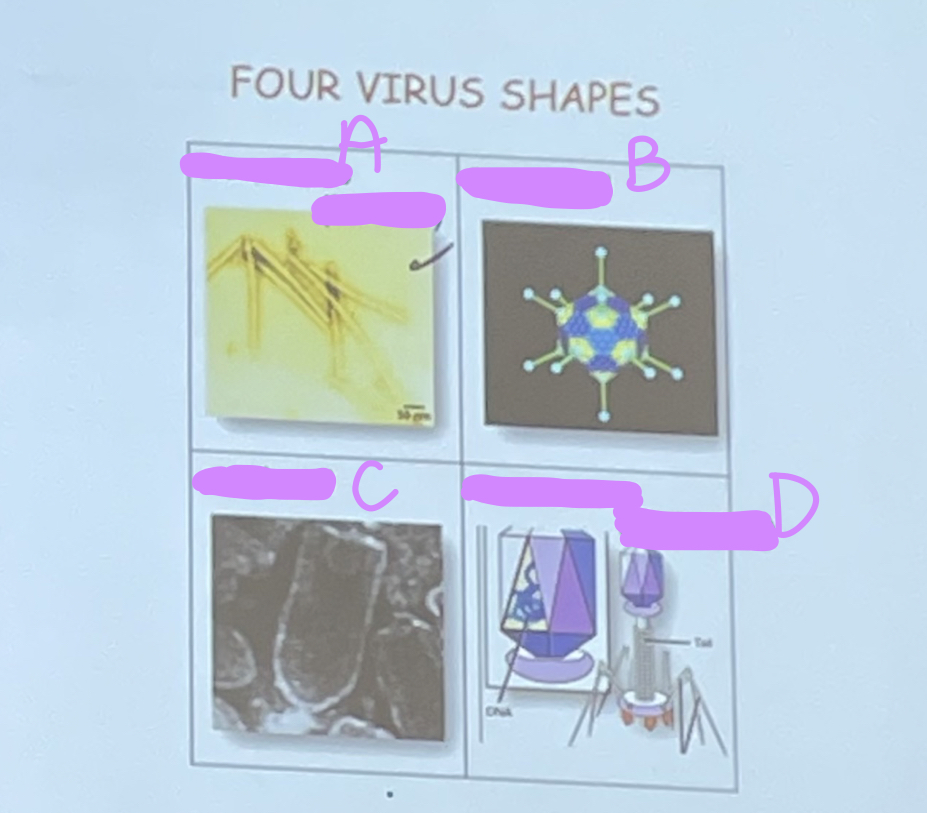
D
(Head and tail) complex virus
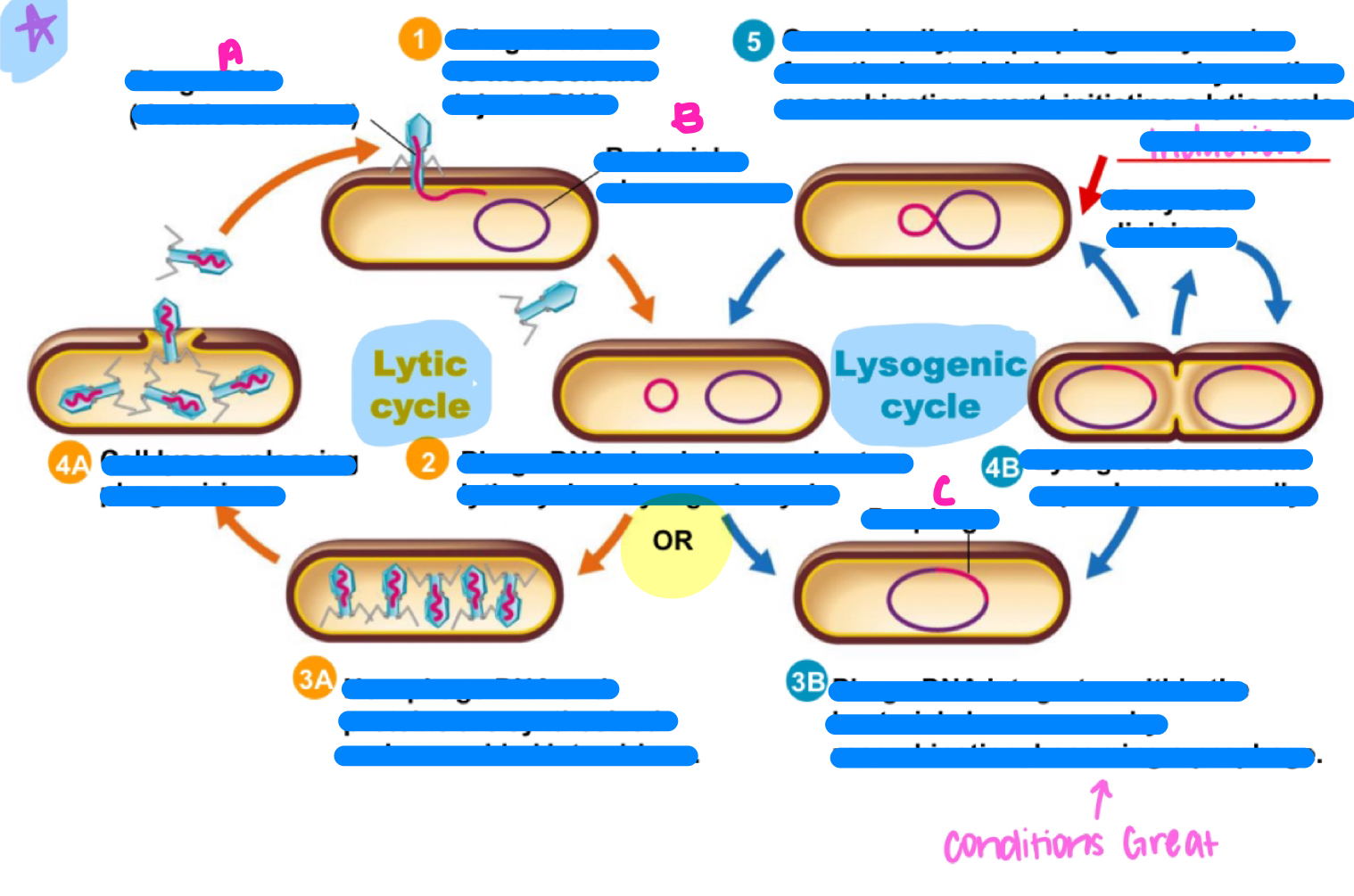
what is A
phage DNA (double stranded)
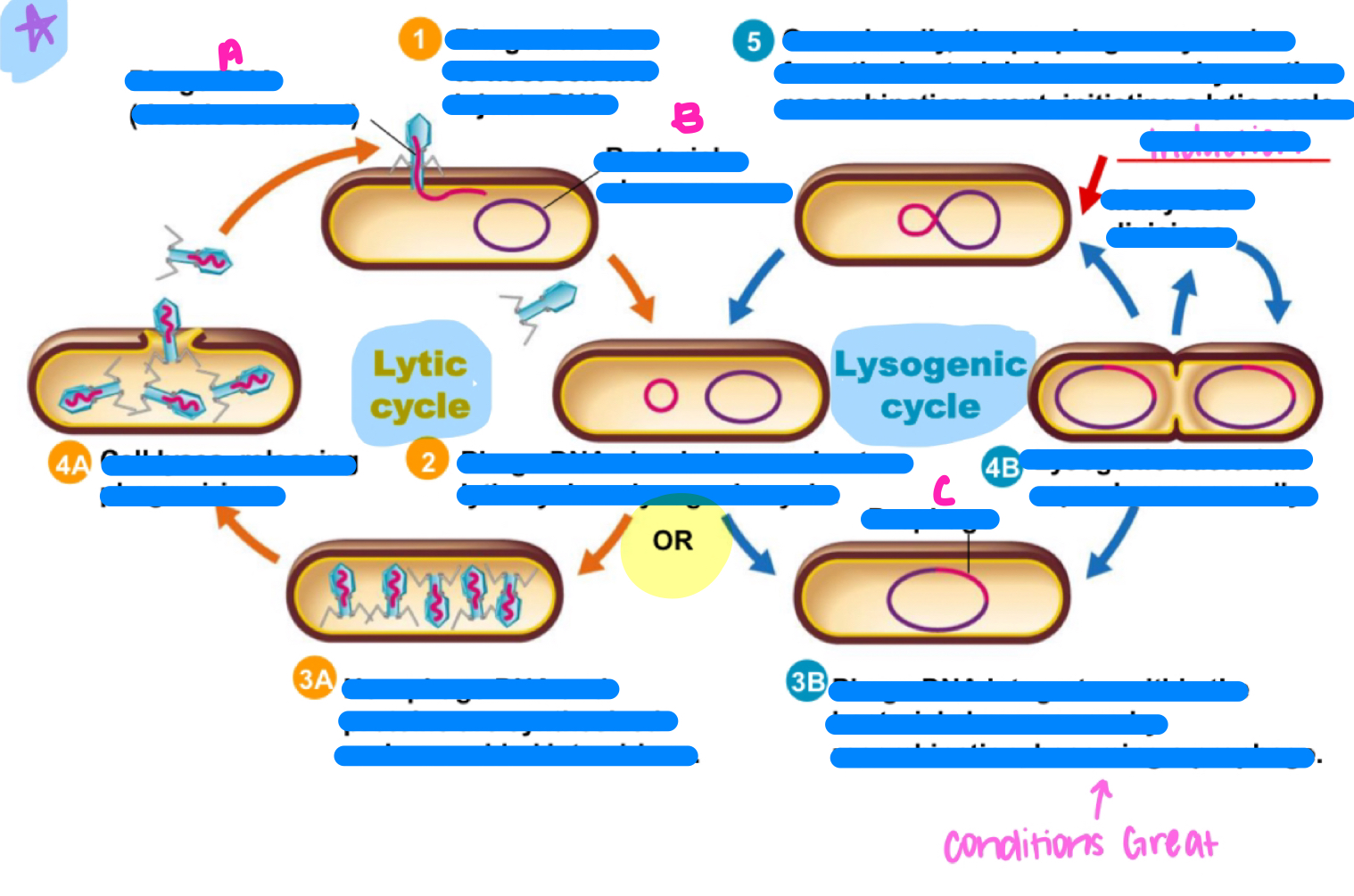
what is B
bacterial chromosome
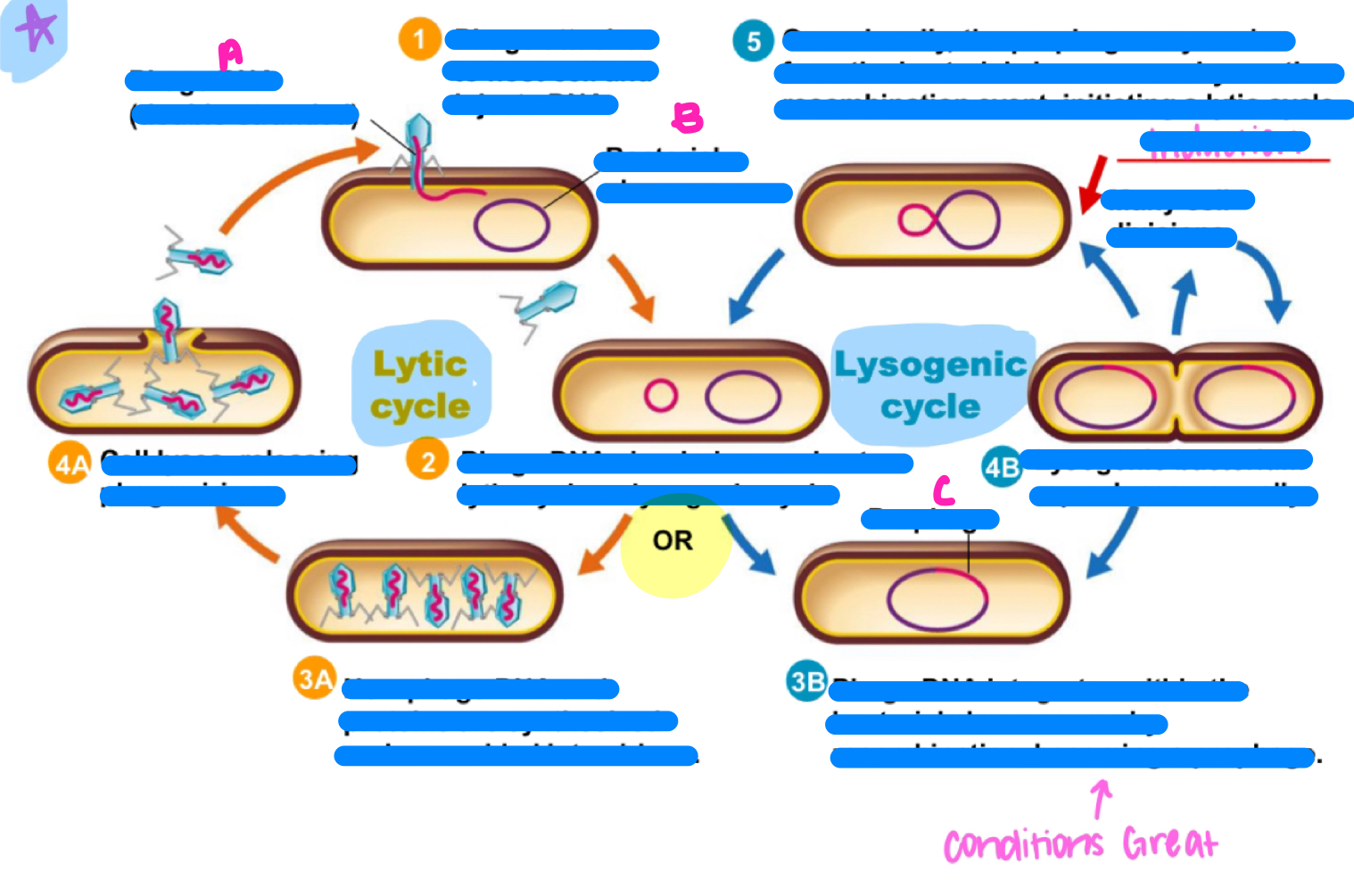
what is C
prophage
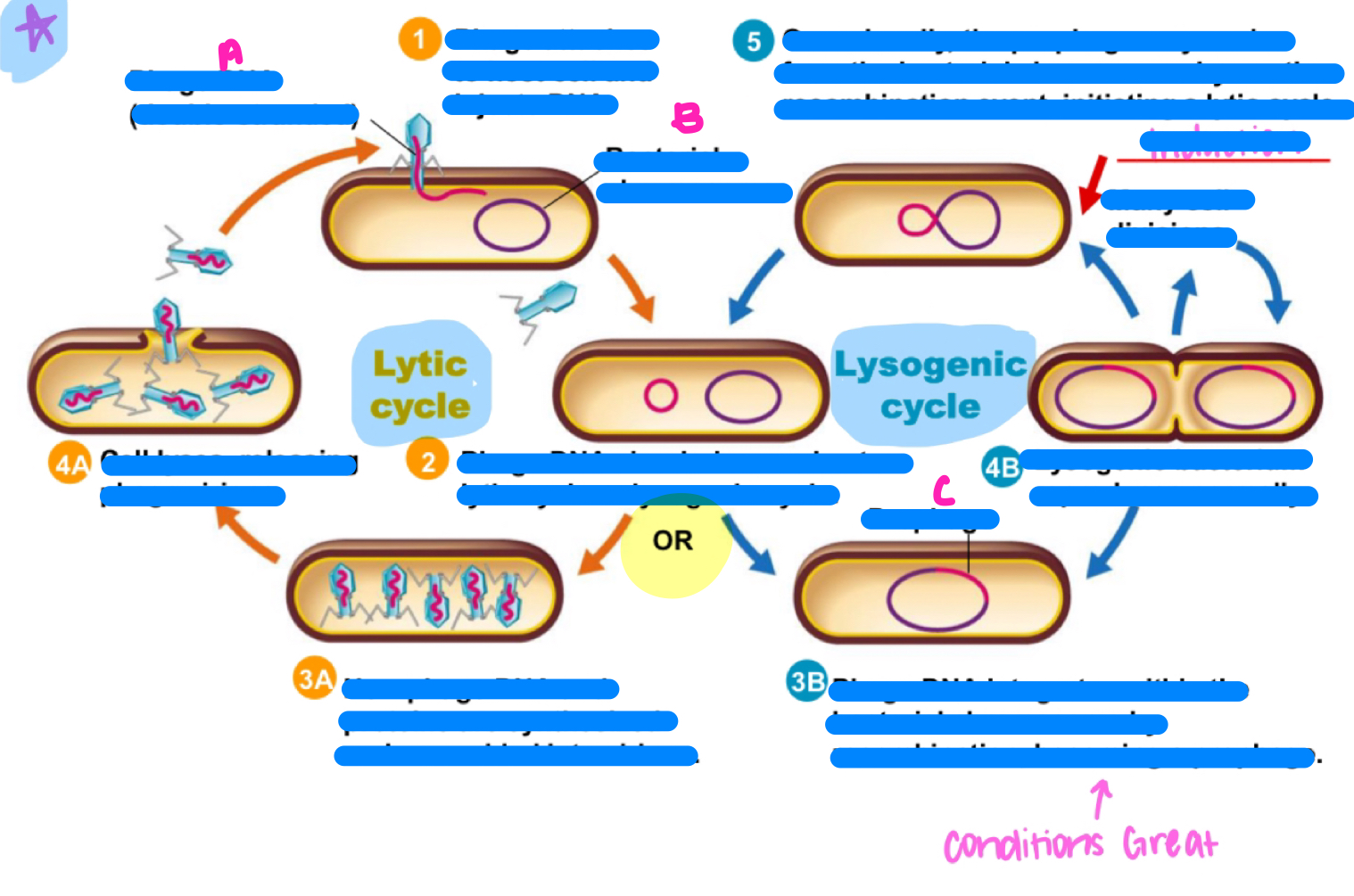
1
phage attaches to host cell and injects DNA.
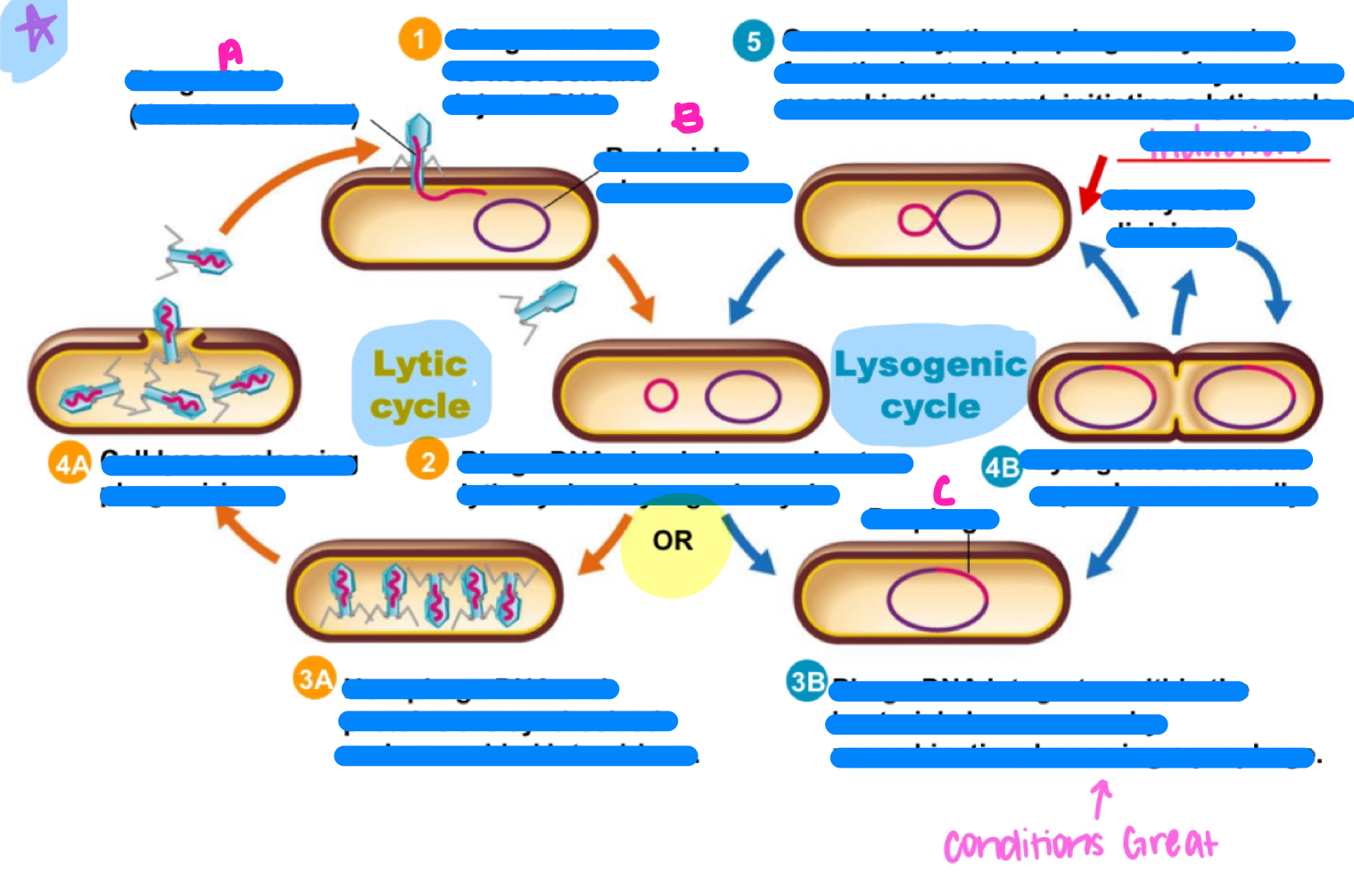
2
phage DNA circularizes and enters the lytic cycle OR lysogenic cycle.
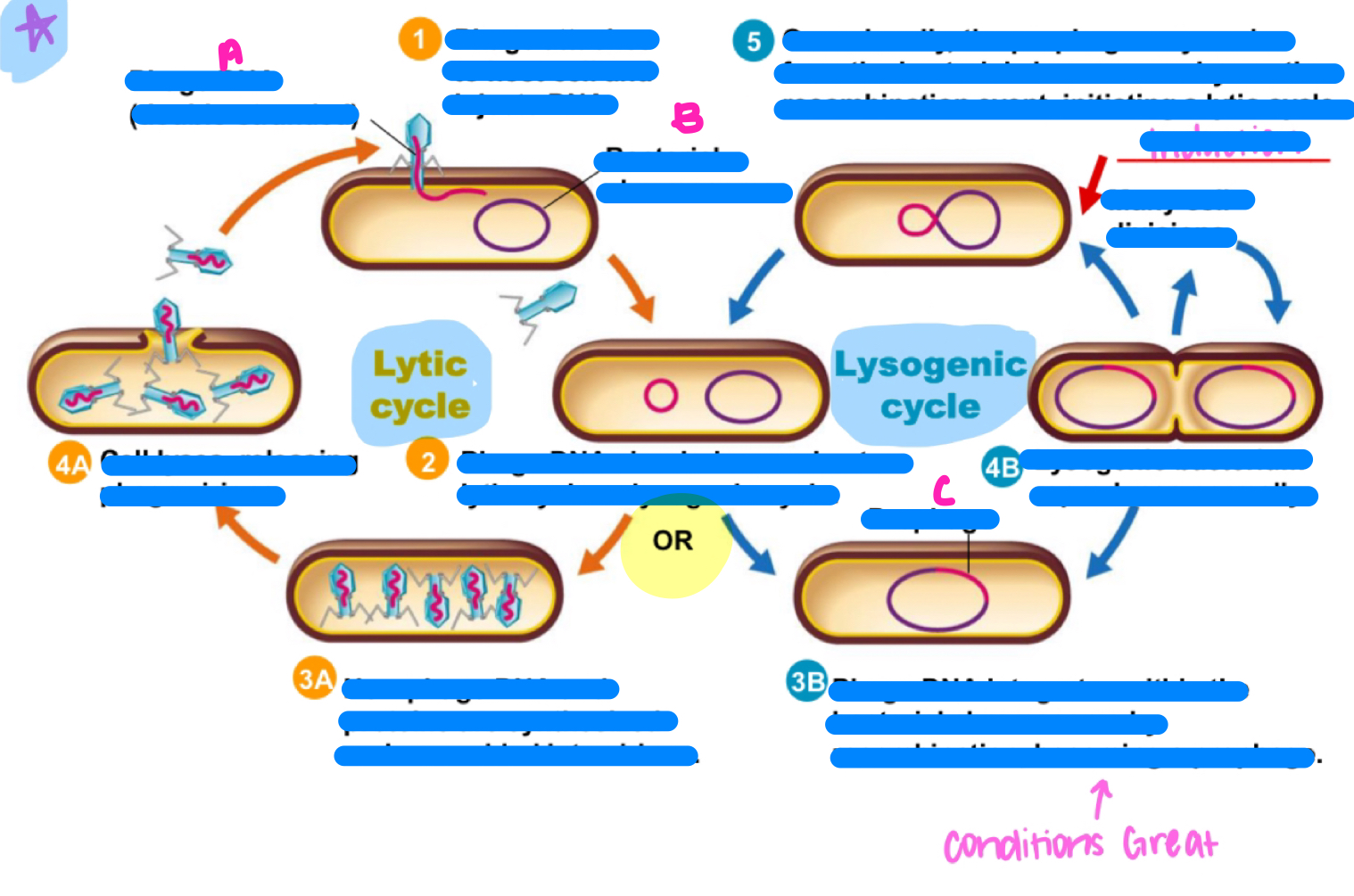
3A
new phage DNA and proteins are synthesized and assembled into virions.
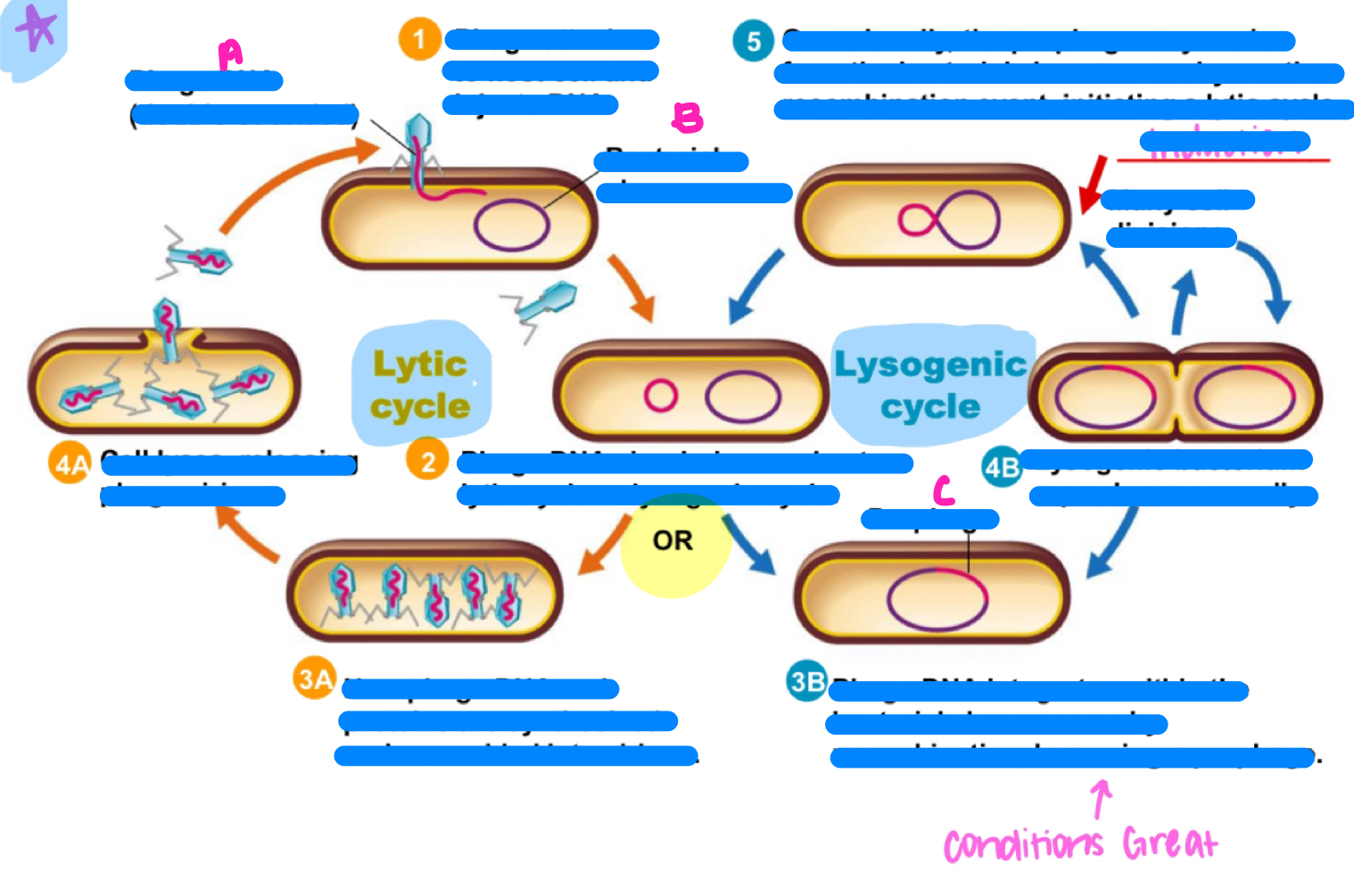
3B
phage DNA integrates within the bacterial chromosome by recombination, becoming a prophage. (happens when conditions are great)
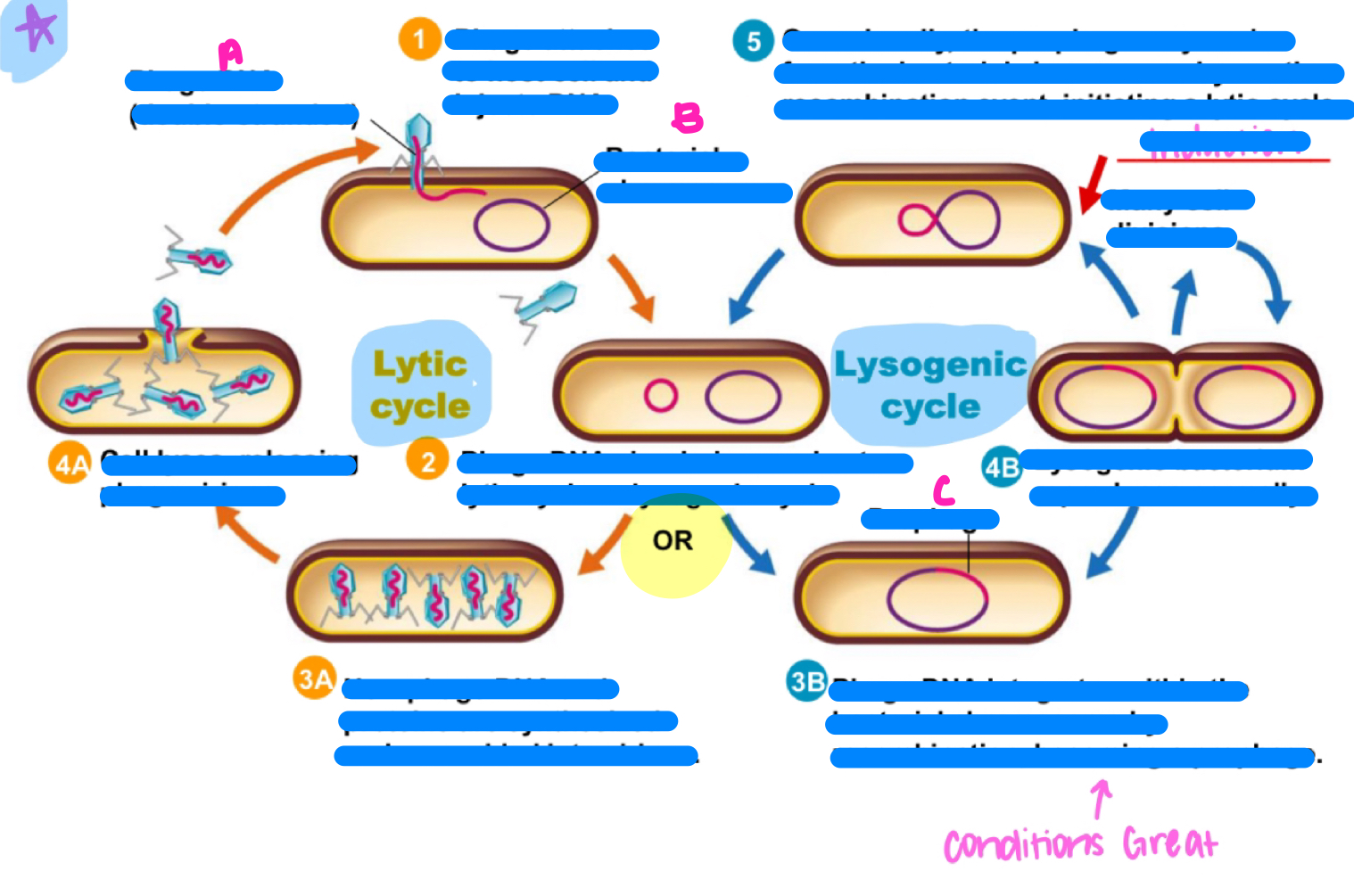
4B
lysogenic bacterium reproduces normally.
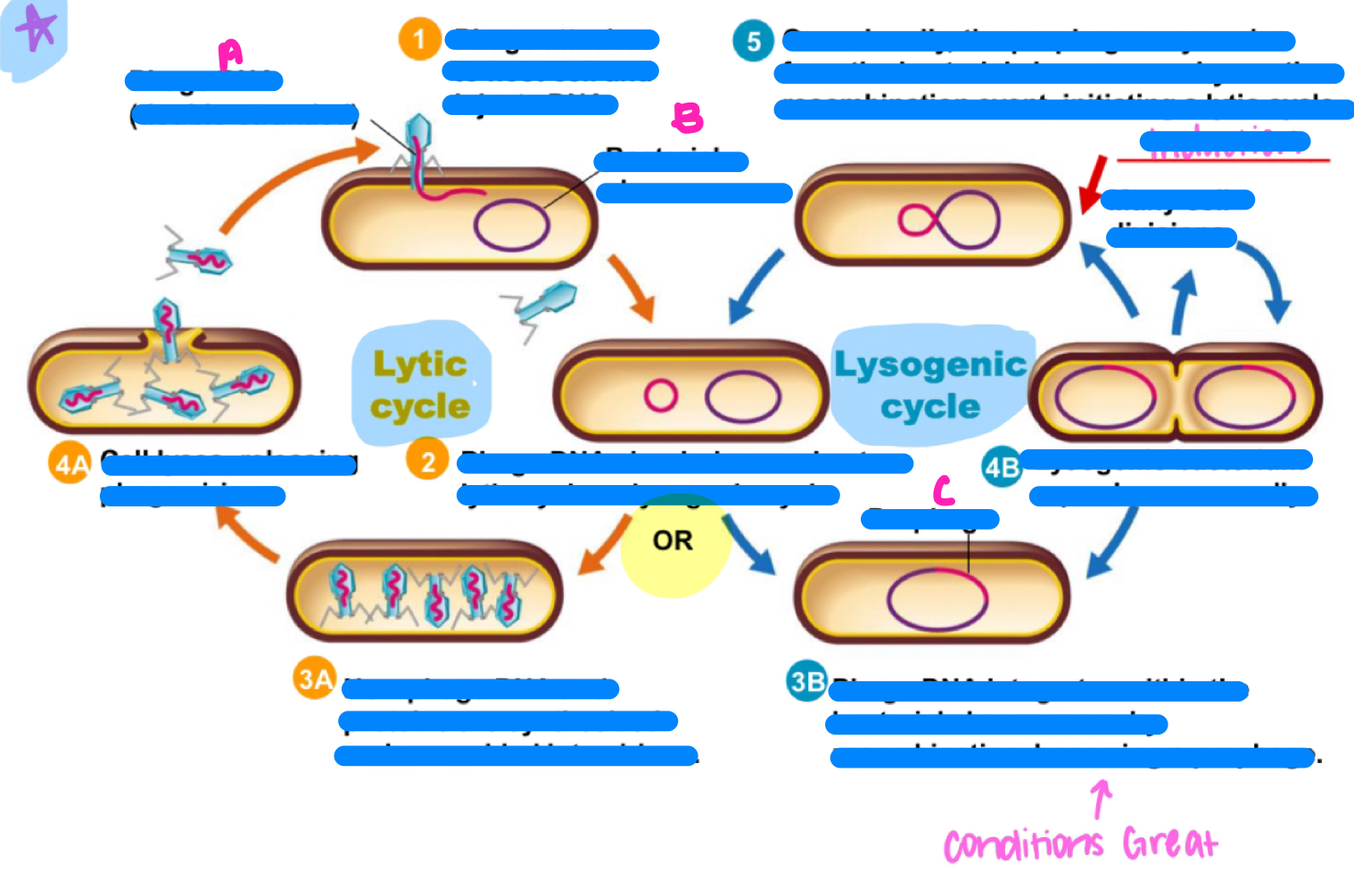
4A
cell lyses, releasing phage virions.
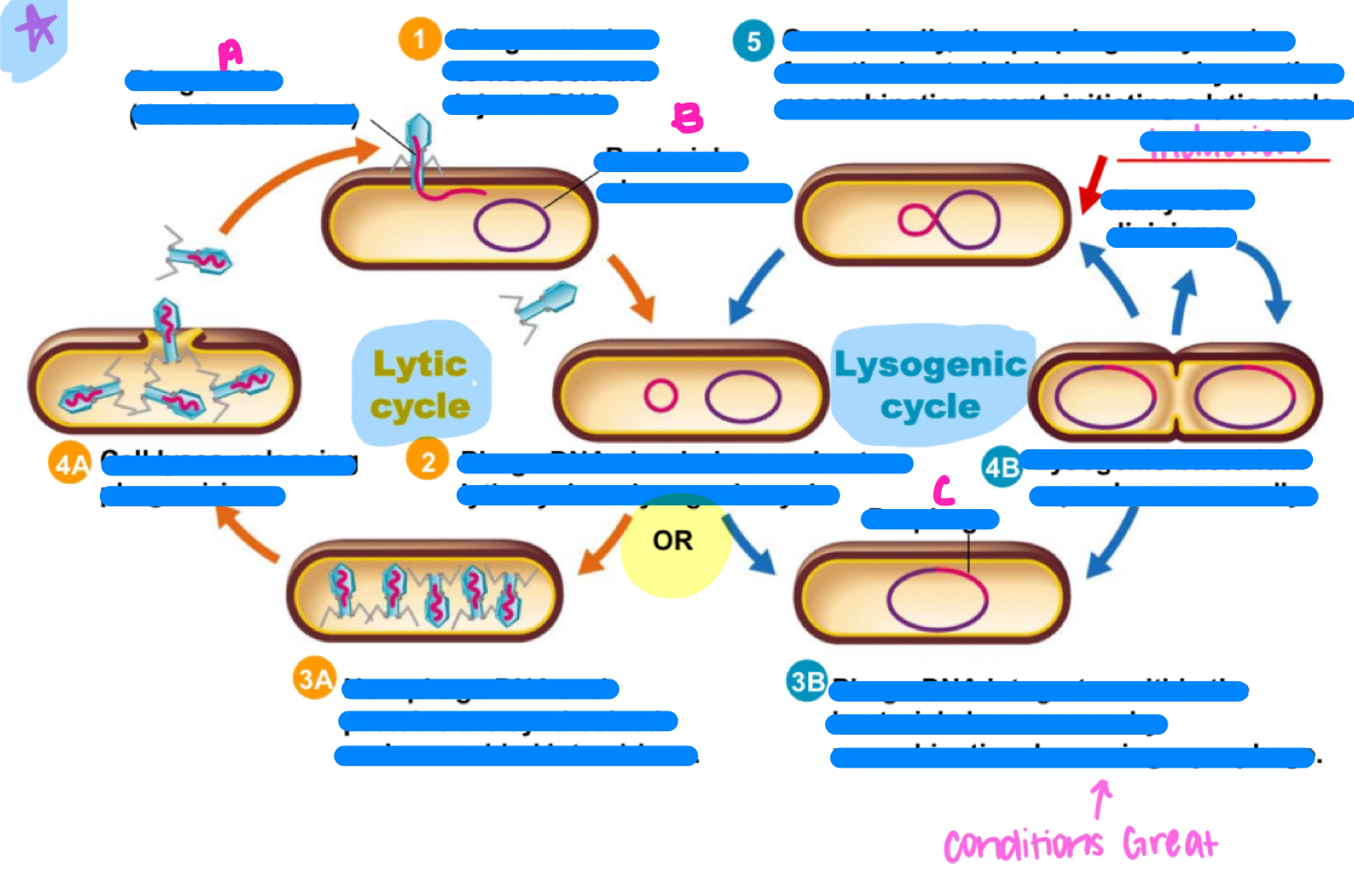
5
occasionally, the prophage may excise from the bacterial chromosome by another recombination event, initiating a lytic cylce.
why is resistance to environmental conditions important for an enveloped virus?
viruses with a damaged or destroyed cell envelope cannot react with the host cell receptor. anything that damages a cell membrane will damage the viral envelope. damaged = no infectivity.
viruses must be grown inside …
living cells!
compare sizes of viruses, viroids, prions, and bacteria from largest to smallest
Eukaryotes, yeast, bacteria, virus, prions, viroid
genetic drift
slowly acquire mutations so that there are different strains. ( get a booster )
genetic shift
when type of virus infects more than 1 species (flu and swine flu= genetic recombination)
DNA viruses use _____ for replication.
host enzymes.
transcription
host RNA polymerase located in nucleus
translation
DNA > RNA > Protein. uses the host ribosome!!
dna viruses steal
your stuff to do their stuff!
only DNA viruses can insert into
DNA.
____ cannot crossover with DNA.
RNA viruses. (so doesn’t affect our genomes!)
We’re constantly mutating but our body is working
against that.